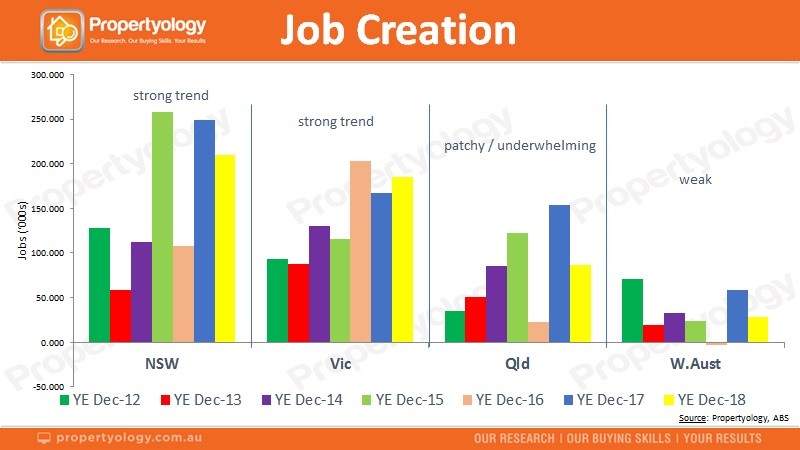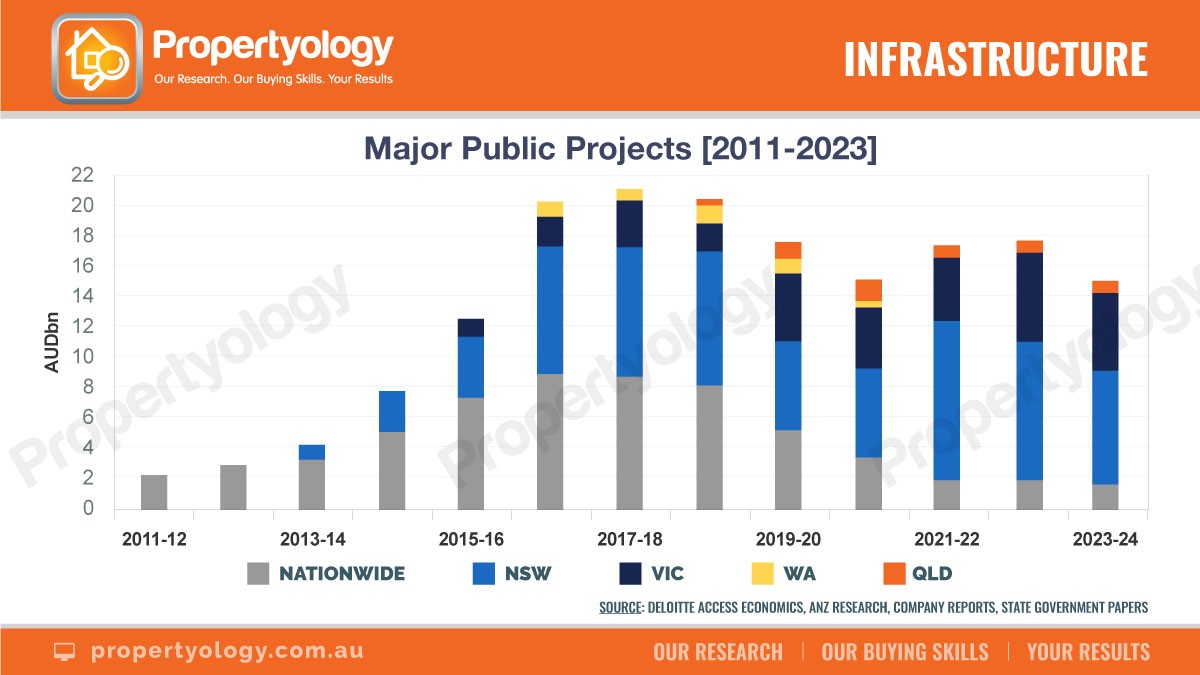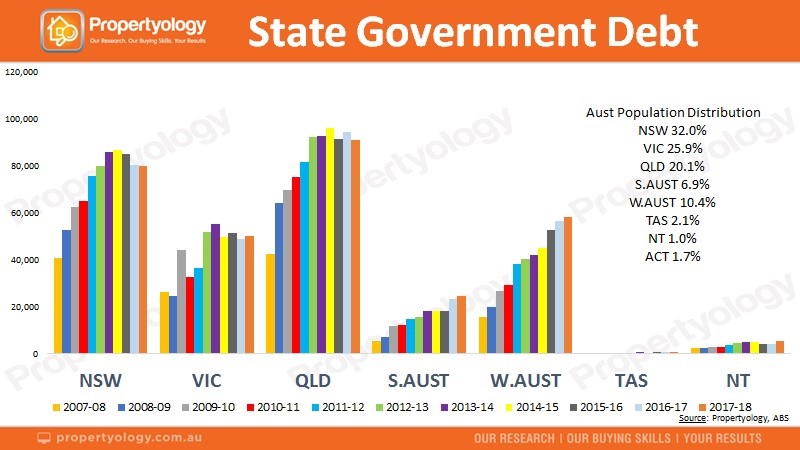Expert Advice with Simon Pressley
It might surprise you to learn that nearly 16 per cent of our working population is employed within the government sector. To be precise, of Australia’s total workforce of 12.6 million people, 1,987,000 are employed by the Federal, State and Local governments.
The largest cohort is within state/territory governments, at about 78 per cent of the total government jobs, which is why mass public sector retrenchments or redundancies are never a good thing for the property market or for general consumer sentiment.

I’ve written thousands upon thousands of words over the years about how the strength of an economy is the most influential force on property markets – regardless of whether it’s Ballarat, Brisbane, Burnie or Busselton.
Following the same logic, then, it’s easy to understand how a state government’s economic management – or otherwise – can have a big impact on real estate markets.
Economic nous
A government that creates and follows an economic plan to increase revenue as well as jobs by investing in such things as major infrastructure projects and attracting new business, opportunities and residents to its shores will likely also have a healthy property market.

Just think of Tasmania, New South Wales and Victoria over the past few years, which were all following economic policies that created the ideal conditions for a property market upswing.
Sound government economic management will improve consumer confidence and create the right mindset for its citizens to transact in something as expensive as real estate, which is a vital cog in a state’s fiscal engine room.
A government that’s supportive of the property sector is one with a strong revenue stream. Property taxes, especially stamp duty, represent the nation’s largest funding source for important infrastructure projects for our growing (and aging) population.

Lateral-thinking governments also consider how certain property tax policies help (or hinder) the acquisition of real estate, private sector supply of rental stock for our growing population, minimising the reliance on taxpayer-funded aged pensions, and the general health of the economy.
The ACT Government, in 2012, began a 20-year process of transitioning away from stamp duty to a broad-based progressive land tax. Once fully implemented, this initiative will improve resident mobility – stamp duty cost is a big impediment for people relocating.
Economic no-no’s
When governments are on the economic front foot, not only are they supporting healthy property markets, and thereby a positive consumer mindset, they also create more employment opportunities in many different industries.
Job and wage growth are both vital for an economy to flourish, which is the part of the problem we have at a national level right now [did you hear the one about the unintended national consequences of one such government department’s decisions?
The services provided to a community by government employees are very broad. From our military personnel, to doctors and nurses, the important bean-counters at the tax office, various other government departments, to city council employees whom look after our parks and gardens, and lots of administration roles.
According to the latest data from ABS (an important government department), the cost to Australian taxpayers for employing nearly 2 million government personnel is $158 billion per year.
On occasions, some governments go down the path of employing more staff than they need. When they do, it has the affect of distorting unemployment rates. Yes, Queensland, I’m looking at you.
Now, hiring staff is never a bad idea as long as you have a bona fide job for them to fill.
However, when governments employ more public servants than required to provide the community’s services it is a terrible use of taxpayer revenue.
The extra expense gets added to government debt, which means an even higher portion of our taxes is wasted on interest bills instead of much-needed infrastructure.
A case in point is that the Queensland Government has the largest government debt in the nation at a staggering $90 billion.

Of course, not all of this debt is because it potentially has too many staff. Some of the debt was for investment in major infrastructure projects.
Truth be known, Queensland’s infrastructure pipeline is quite lean.
It must be noted, Queensland spends about 43 per cent of its expenses – or $25.91 billion – every year on employee expenses and superannuation.
Likewise, when governments decide to tangle everything up in red tape, it does no favours to property markets.
Protracted application processes of private sector residential and infrastructure projects significantly add to costs, which are ultimately passed through to consumers.
In turn, it builds frustration, and diminishes private sector confidence, which creates a situation where businesses are less likely to take risks and create more employment opportunities.
What does it all mean?
Simplistically, an economy that is growing because of both public and private sector jobs, as well as other factors, is one that is likely to have a healthy property market.
That’s because there is business confidence in the region as well as new industries setting up shop because of its economic fundamentals.
Conversely, an economy that is treading water, with jobs growth only seeming to happen within the “halls of power”, is likely to be one that is not going to kick into second gear any time soon – regardless of the statistical smoke and mirrors at play.
......................................................................
 Simon Pressley is Head of Property Market Research and Managing Director at Propertyology.
Simon Pressley is Head of Property Market Research and Managing Director at Propertyology.
Propertyology is a national property market researcher and buyer’s agency, helping everyday people to invest in strategically-chosen locations all over Australia. The multi-award-winning firm’s success includes being a finalist in the 2017 Telstra Business Awards and 2018 winner of Buyer’s Agency of the Year in REIQ Awards For Excellence.
Disclaimer: while due care is taken, the viewpoints expressed by contributors do not necessarily reflect the opinions of Your Investment Property.
